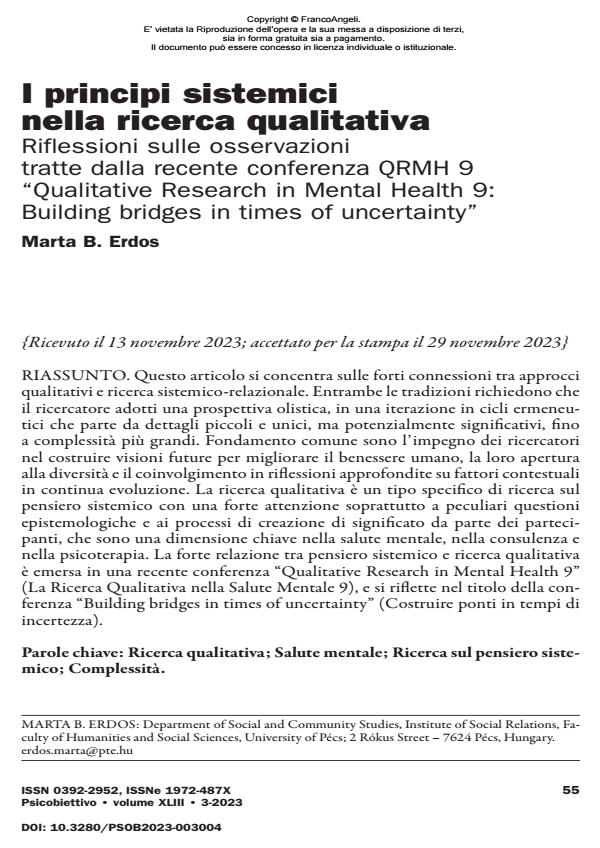Systemic principles in qualitative research. Reflectionson the messages of a recent conference qrmh 9 "qualitative research in mental health 9: building bridges in times of uncertainty"
Journal title PSICOBIETTIVO
Author/s Marta B. Erdos
Publishing Year 2024 Issue 2023/3
Language Italian Pages 11 P. 55-65 File size 633 KB
DOI 10.3280/PSOB2023-003004
DOI is like a bar code for intellectual property: to have more infomation
click here
Below, you can see the article first page
If you want to buy this article in PDF format, you can do it, following the instructions to buy download credits

FrancoAngeli is member of Publishers International Linking Association, Inc (PILA), a not-for-profit association which run the CrossRef service enabling links to and from online scholarly content.
This article focuses on the strong connections between qualitative approaches and systems thinking research. Both traditions require the researcher to adopt a holistic perspective, iterating from the small and unique but potentially significant details to larger complexities during the hermeneutical cycles. Researchers’ commitment to build future visions to enhance human well-being, their openness to diversity and involvement in deepening reflections on ever-changing contextual factors are also a common foundation. Qualitative research is a specific type of systems thinking research with a strong focus on specific epistemological questions, most importantly, participants’ meaning making processes, which are a key issue in mental health, counselling, and psychotherapy. The strong relationship between systemic thinking and qualitative research has been apparent at a recent conference, “Qualitative Research in Mental Health 9”, and was reflected in the conference title “Building bridges in times of uncertainty”.
Keywords: Qualitative research; Mental health; Systems thinking research; Complexity
Marta B. Erdos, I principi sistemici nella ricerca qualitativa Riflessioni sulle osservazioni tratte dalla recente conferenza QRMH 9 "Qualitative Research in Mental Health 9: Building bridges in times of uncertainty" in "PSICOBIETTIVO" 3/2023, pp 55-65, DOI: 10.3280/PSOB2023-003004